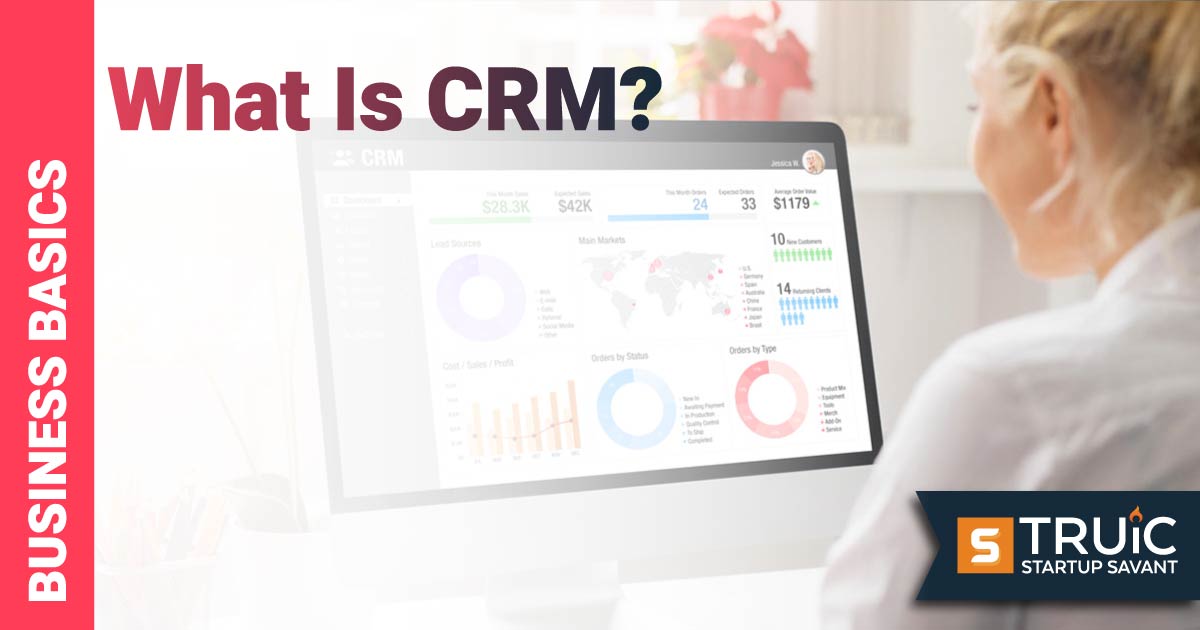Salesforce vs. NetSuite 2024
Which Is the Best CRM Software?

Last Updated: By TRUiC Team
Salesforce and NetSuite both offer comprehensive CRM tools for startups and larger businesses. Salesforce boasts an industry-leading, feature-rich CRM, while NetSuite, which was acquired by Oracle, is pushing to grow its market share with a CRM product that integrates perfectly with its already popular ERP software.
But when these two CRM heavyweights face-off, which emerges as the best CRM software? And does being the best CRM software mean it's right for your startup? Before you invest in critical CRM software, you'll want to choose the one that will work best for your startup. To do that, we’ll compare Salesforce vs. NetSuite in this guide to help you determine which is the best CRM software for your business’s unique needs.
Best CRM for Startups: Salesforce
Salesforce vs. NetSuite: What Sets Them Apart
Pricing
When comparing the standard CRM plans for both businesses, NetSuite leaves you in the dark. While Salesforce makes its pricing structure available, NetSuite requires you to contact its sales team for a quote. NetSuite calculates prices using three components: core platform, optional modules, and number of users, meaning plans can be expensive.
Salesforce Sales Cloud CRM offers four plans starting at $25/user/month, with each building on the prior plan up to the Unlimited for $300/user/month. Salesforce also allows you to add optional modules that can become expensive, but at the end of the day, it offers more bang for your buck.
Integrations
Salesforce delivers an industry-leading AppExchange with loads of popular applications that easily integrate with the Salesforce platform. With over 4,500 integration possibilities, many built by Salesforce, Salesforce leaps to the front of the pack.
Meanwhile, the younger NetSuite can boost its capabilities but has far fewer options, with only hundreds of apps available that overall lag behind the compatibility of products and the sophisticated range of choices offered by Salesforce.
Reporting and Analytics
NetSuite does not offer AI-powered capabilities with any plan, so it is not able to provide some of the technologically sophisticated options that Salesforce offers in terms of insights, smart data capture, scoring, and forecasting.
While NetSuite remains a powerful CRM that outperforms many others in its class and provides standard and customizable reporting options, Salesforce, with its robust, long-standing focus on sales optimization, is often considered best-in-class when it comes to delivering flexible custom reporting capabilities, AI functionality, and detailed data.
Customization
Salesforce has created a highly customizable platform with broad capabilities in its higher-tiered plans to create custom objects, fields, sales processes, and automation. You'll also be able to customize records, organize data, and personalize user access and team management.
NetSuite also offers an impressive array of capabilities like customizable role-based dashboards, reports, categories, templates, and automation, but doesn't quite reach the capabilities of Salesforce.
Ideal Customer
NetSuite’s ideal CRM customer may already be using an existing NetSuite product, such as its ERP software, and be attracted to the idea of an all-in-one, integrated system. NetSuite targets companies with 10 to 10,000 employees, but larger organizations will find its integration capabilities limited, while very small businesses will likely feel priced out and yearn for a free option like HubSpot.
Salesforce is the most versatile CRM software with the ability to scale an ambitious startup, optimize a small to midsize business, and support a large enterprise business, but if you need a free platform, it's not for you.
Salesforce vs. NetSuite: Similarities
Features
Salesforce and NetSuite both come stocked with well-rounded CRM software features like sales process automation, customizable workflows, email integration, and mass marketing capabilities, alongside tools geared toward capturing and converting more leads.
NetSuite provides broader built-in marketing capabilities and streamlined quotes through fulfillment tools that shine in a product-driven company. Salesforce, meanwhile, offers stronger team management and mobile capabilities and an overall more sophisticated feature set, particularly with higher-tiered plans, including AI, advanced visual dashboards, a sandbox, and strong lead management features.
Ease of Use
Both NetSuite and Salesforce have reputations as relatively easy-to-use CRMs. NetSuite has a visual interface that is simple, clean, and customizable to add complexity, whereas Salesforce does a superior job of presenting sophisticated data using easy-to-understand visual aids. Users can expect that onboarding, while relatively straightforward, will require some time for both, which isn’t a huge surprise considering both offer customizable software that can serve complex business needs. Still, Salesforce holds a slight advantage for marrying some serious abilities with ease.
Customer Support
Both NetSuite and Salesforce offer tiered, premium customer support plans that can be added to any subscription for a considerable fee. With all plans, NetSuite provides help via an online support portal, while Premium Support subscribers have 24/7 phone support, and top plans provide managed, hands-on support solutions. Salesforce offers live chat support to logged-in users and phone support for all customers in the case of a business stoppage issue, with users also able to add premium features, like priority phone support and Account Management, for a price. Overall, Salesforce users report high levels of satisfaction with its support solutions.
Training and Resources
Both Salesforce and NetSuite offer comprehensive resources, including free online tools alongside paid training services. Through its Resource Center, Salesforce users can find helpful tools, including webinars, videos, guides, a customer community, and articles, and its free Trailhead online training platform receives high marks. NetSuite offers similar helpful online resources, and while it falls behind Trailhead in free training options, it does offer paid training services, such as its Customer Success plan, which includes global implementation and ongoing support services.
Best CRM Overall: Salesforce
We recommend Salesforce CRM for startups because of its large number of features and easy-to-use platform.
Salesforce vs. NetSuite: Customer Reviews
NetSuite is used by entrepreneurs who:
- Are already using an existing NetSuite product
- Run a growing startup or small to midsize business with a product focus
- Want to optimize customer-facing processes
- Have fewer mobile app needs
Here are some verified NetSuite reviews (from TrustRadius) by customers who used this formation service to help launch their business:
“I've been using NetSuite CRM for almost 3 years now. Over the past 1, our team has really revamped the CRM to let our internal sales team do amazing work through automation. One of my favorite small customizations was a workflow that creates a follow up task in NetSuite when a customer's contract is 1 month from expiring. The other great feature we added was to be able to have a report of all the customers in the last 10, 20, and 30 days that have not had a status change if they are in an active pipeline. We switched from Hubspot to NetSuite CRM because all the rest of our data already lives in NetSuite so it makes sense to leverage the automation tools in the ERP for the CRM as well. ”
"NetSuite [CRM] is a fantastic platform where the merging of a CRM and ERP system is desired. This allows you to track orders, bookings and shipments to have a complete birds eye view of your pipeline and sales processes. The Marketing capability is also there with full capability for mass email campaigns and tracking of those who opened, clicked or unsubscribed.”
“On an operations level, NetSuite CRM is really good. It is easy to navigate inventory and allocate orders under the appropriate department for revenue or warranty. I feel there are more suited CRM's that are much more user friendly for ticketing systems.”
Salesforce is used by entrepreneurs who:
- Would benefit from detailed, flexible data reporting
- Are scaling a startup
- Have strong mobile sales access
- Want top-tier customization and integration capabilities
Here are some verified Salesforce reviews (from TrustRadius) by customers who used this formation service to help launch their business:
"Salesforce is a great tool to integrate with marketing automation software, it makes it incredibly easy to see where people fall in the pipeline and how much they have contributed overall to the revenue of the business. The tool can be accessed by anyone within the company (given they have the required permissions). The tool is also great for tracking various marketing campaigns and see just how well they are performing through the many reports it generates, this allows us to really dig deep and find the best ways to continue interacting with our leads and identifying which campaigns are ill-suited to our cause."
"Salesforce Lightning is being used globally, across the whole Rapid7 organization, to provide a receptacle for legacy NetSuite data to make outreach efforts and customer tracking even more visible across all facets of the organization. It saves us time by allowing us to track our efforts, set tasks, send out quotes, make sure there is no double outreach, and increase our ability to be agile in our sales/customer retention/support roles. "
"It has helped the process with individual sales goals and to track what sales people were accomplishing in the nurture process. You could easiely compare how two individuals were doing in easy to use charts. You are also able to easily customize the carts and graphs based on what filters etc you wanted to use. It helps provide different departments an easy insight on where we were with YTD or MTD goals."
Salesforce vs. NetSuite: Pricing and Features
Neither Salesforce nor NetSuite offers a free version, but both offer comprehensive CRM software products that can be purchased in tiers of increasing features. With Salesforce, the pricing is transparent, with feature-rich plans purchased on a per-user basis and add-on modules available. NetSuite has a similar model but hides its pricing, requiring potential customers to contact a sales rep for a custom quote.
Salesforce CRM Packages
Essentials ($25/user/month)
Notable Features:
- Web-to-lead capture and lead management
- Premium AI activity capture
- Customizable reports and dashboard
- Email Integration and campaigns
- Mobile app
Professional ($75/user/month)
Notable Features:
- Pipeline management
- Full customer view
- Mobile app forecasting
- Custom roles and permissions
- Developer sandbox
Enterprise ($150/user/month)
Notable Features:
- Advanced reporting
- Workflow automations
- Sales console apps
- In-platform app building
- AI-generated opportunity scoring
Unlimited ($300/user/month)
Notable Features:
- Sales engagement and insights
- Premier customer success plan
- 24/7 priority support
- Custom-tailored guidance
- Full sandbox
NetSuite Packages
NetSuite only offers custom pricing tailored to an individual startup or company’s needs, so we can’t quote you an exact price for NetSuite products, but we can give you a sense of how their pricing works.
Regarding affordability, users generally tout NetSuite as best suited for midsize or profitable, growing small businesses because of its steeper entry pricing point. While a starting price can’t exactly be confirmed, sources have NetSuite CRM starting at between $45/user/month and $99/user/month.
Custom Plans
How Pricing Is Calculated:
- Core plan price (i.e., CRM module)
- Additional module add-ons
- Number of users
Notable Features:
- Sales and marketing automation
- Quote to fulfillment tracking
- Customer support tools
- Lead generation and management
- Campaign partner management
- Pipeline optimization
Salesforce vs. NetSuite: The Bottom Line
NetSuite had already earned a solid reputation in the ERP space, but with the introduction of its CRM software and Oracle's 2016 acquisition, it began making inroads to the front of the CRM pack. NetSuite is gaining in use, solidifying its place as a serious CRM contender, especially for midsize businesses who would benefit from adopting the full suite of NetSuite products that serve both front-end (sales, marketing) and back-end (financial, inventory) functions.
Salesforce is a behemoth in the CRM space, with top brands praising its usefulness and smaller businesses appreciating how it can drive growth. Its customization, integration, team management, and analytical capabilities offer a best-in-class experience that is flexible and user-friendly enough to benefit even smaller startups as they scale.
Salesforce is overall the best CRM software on the market, but if you are a very small startup with light CRM needs, you may be drawn to a competitive platform that offers a free plan, like HubSpot.


